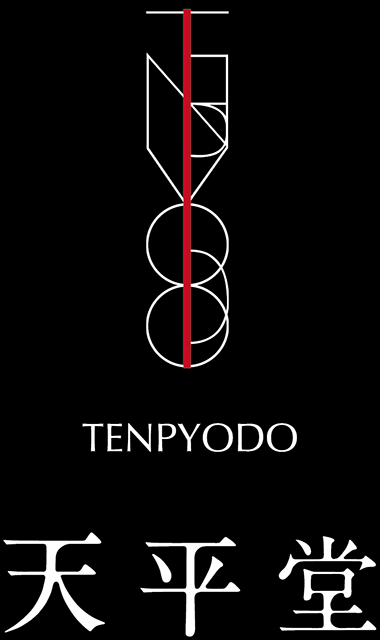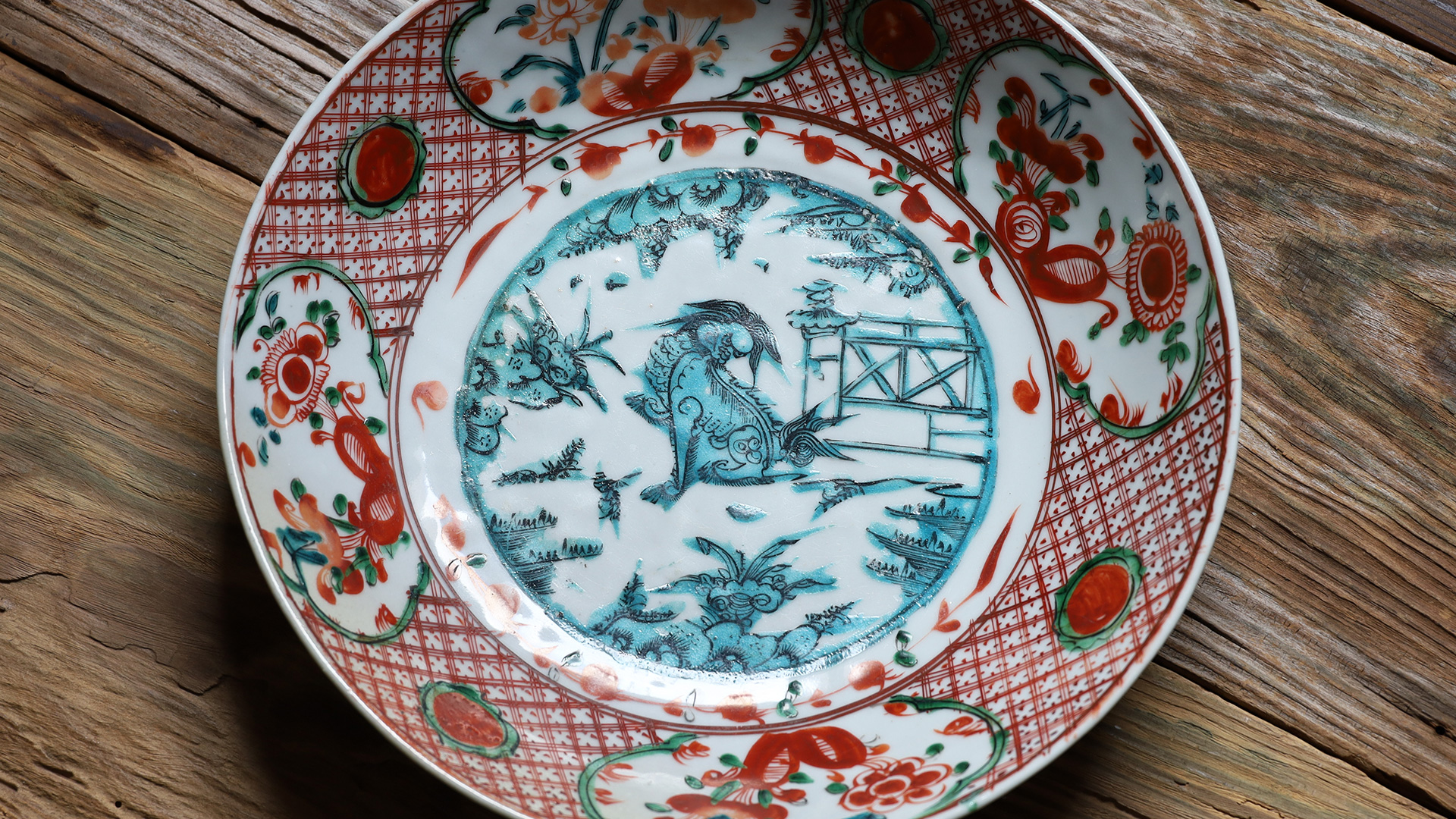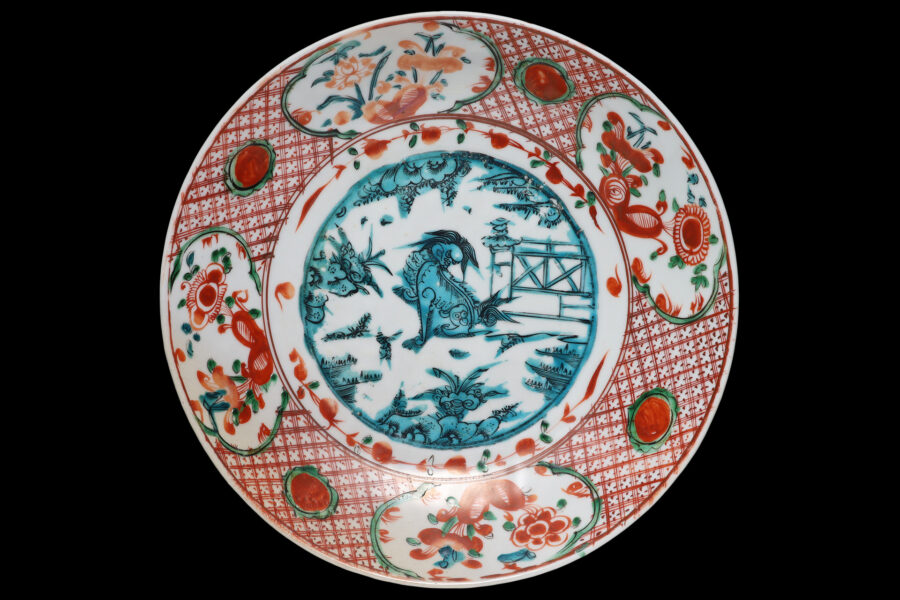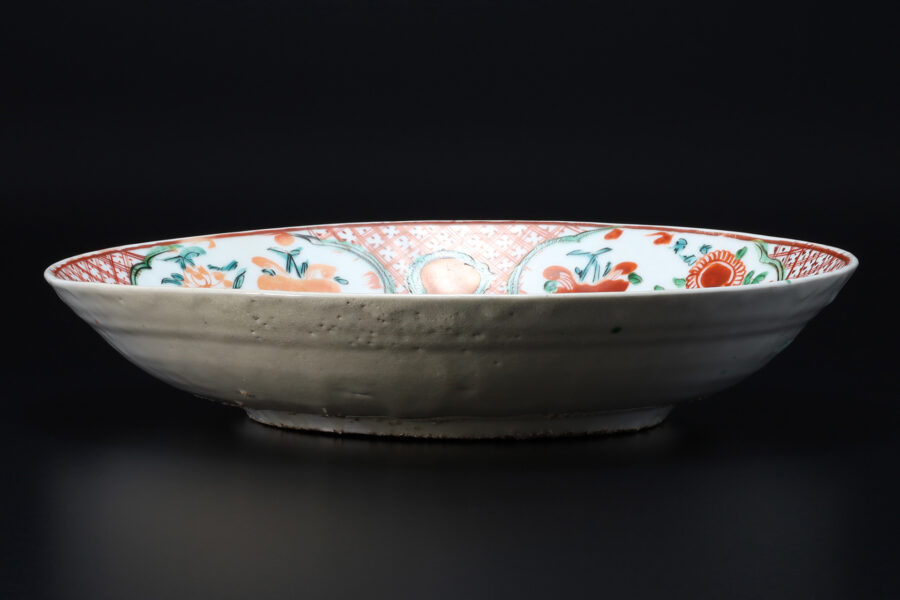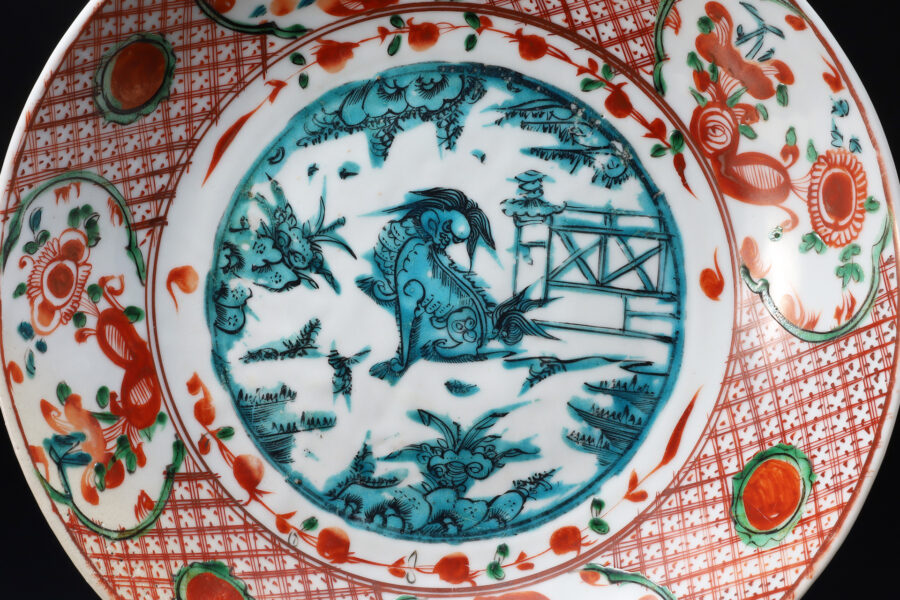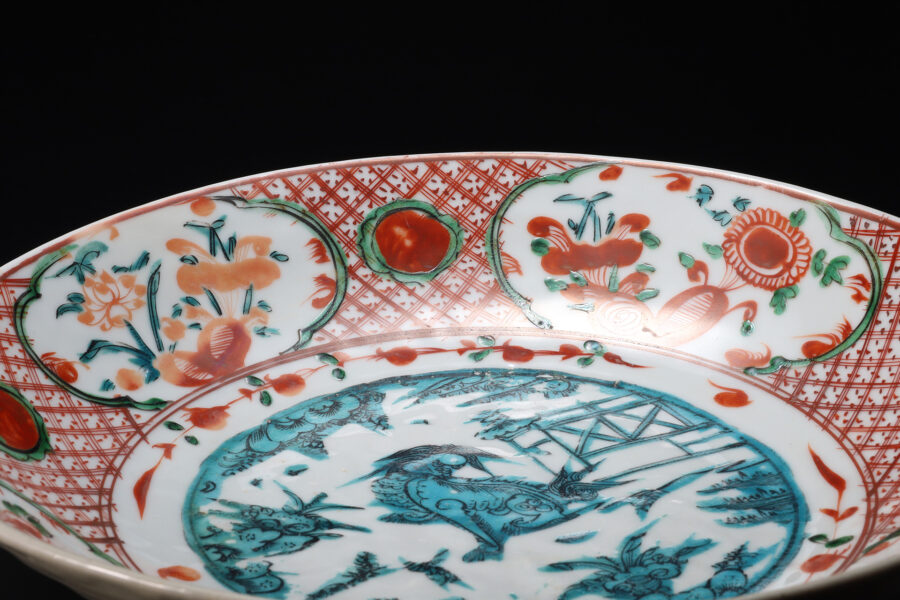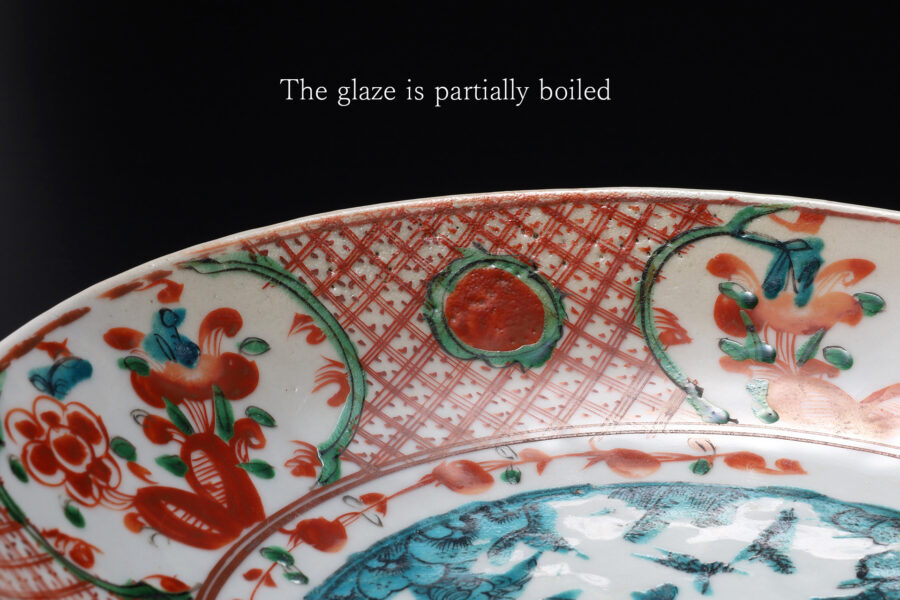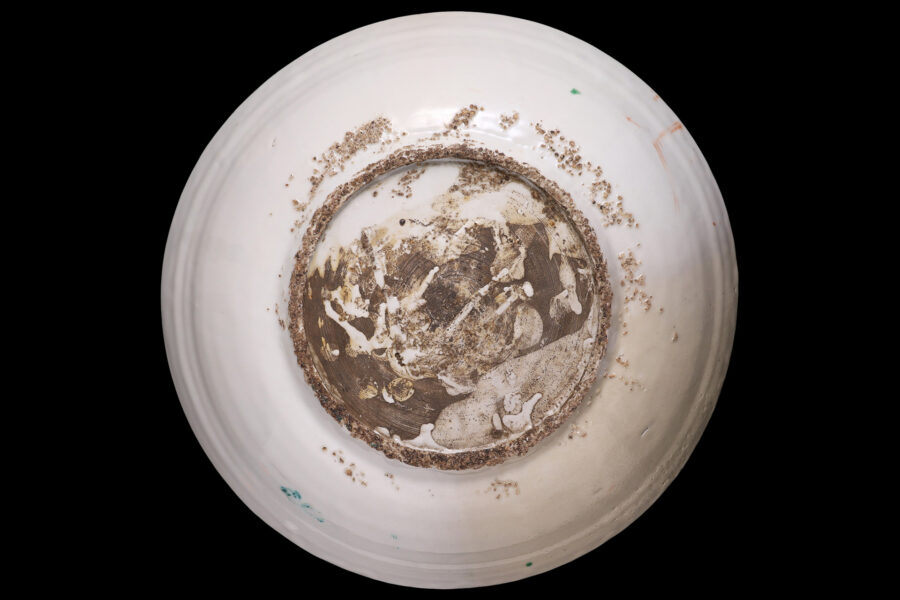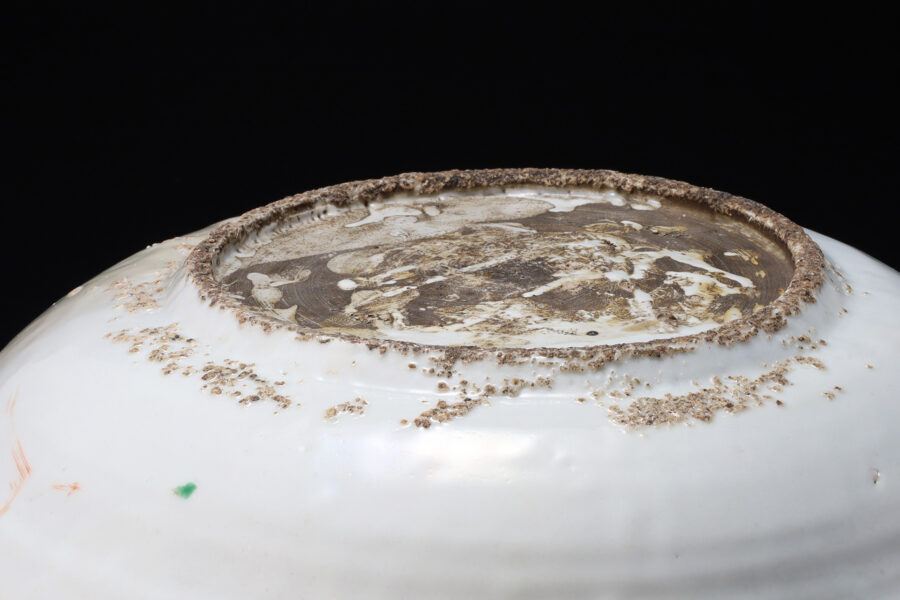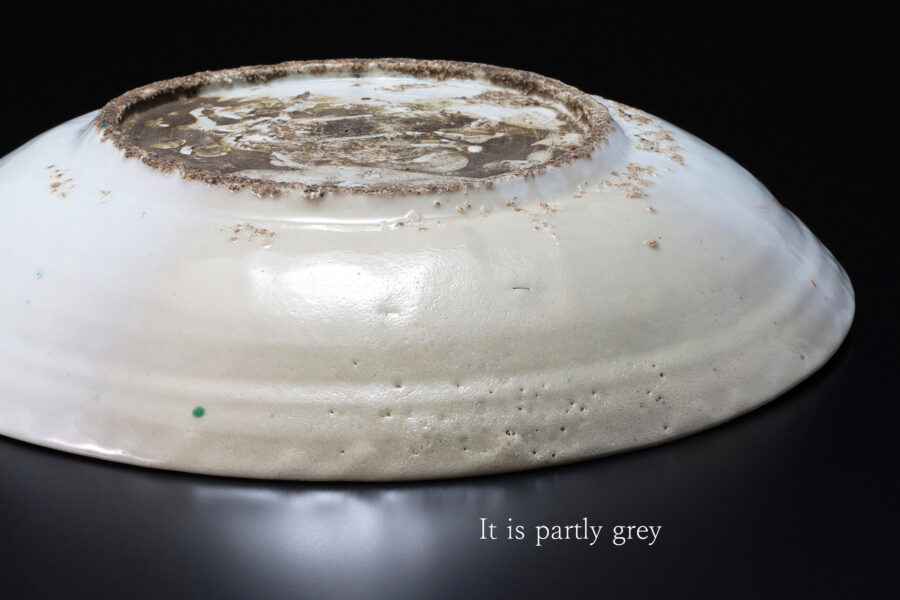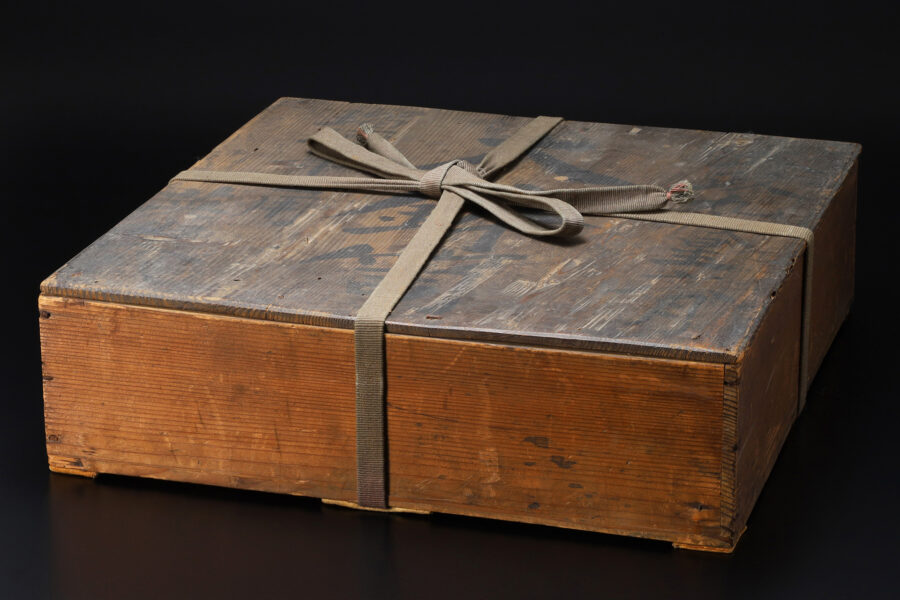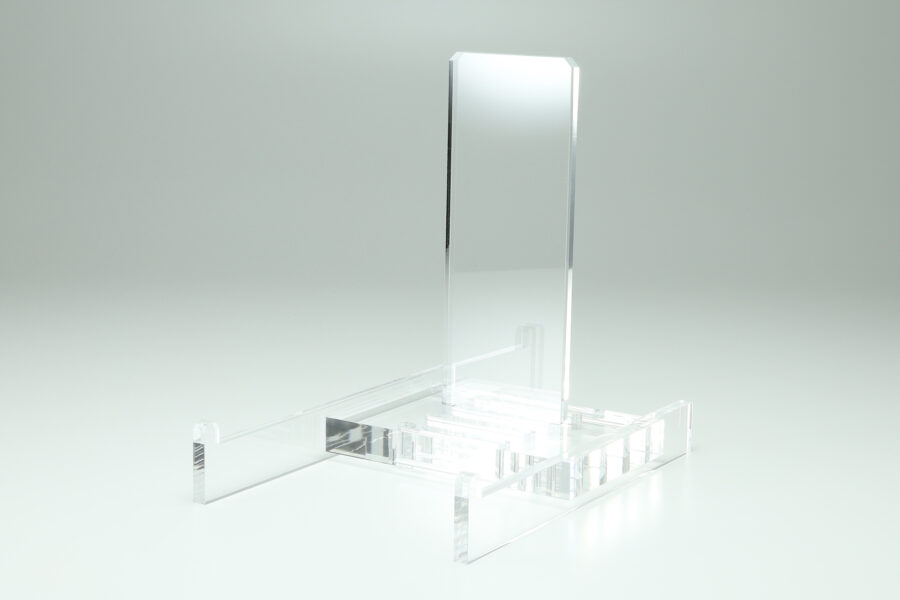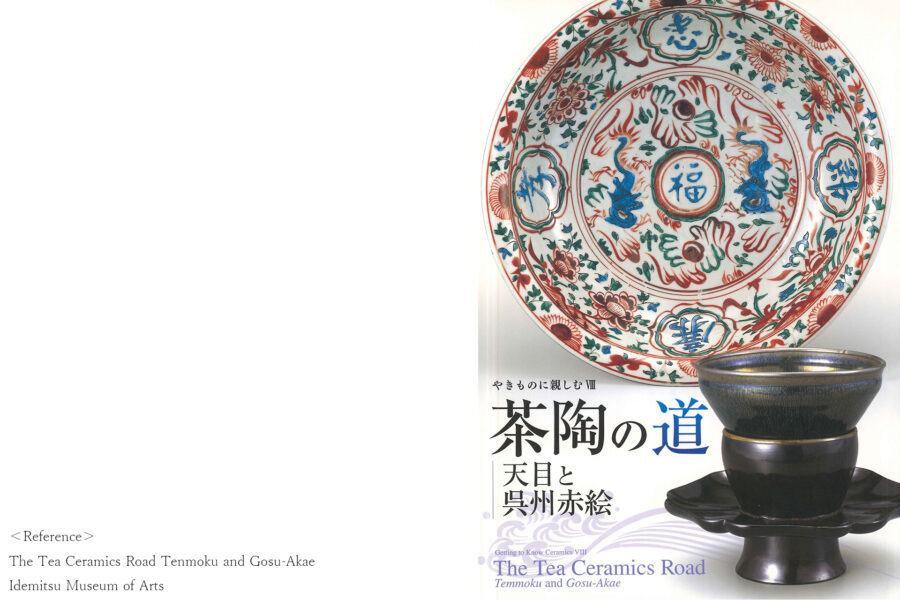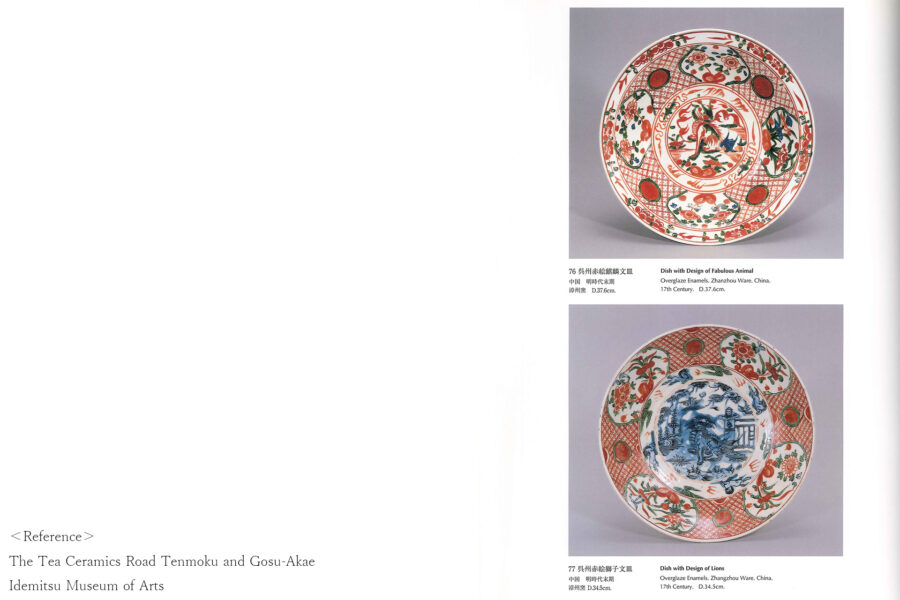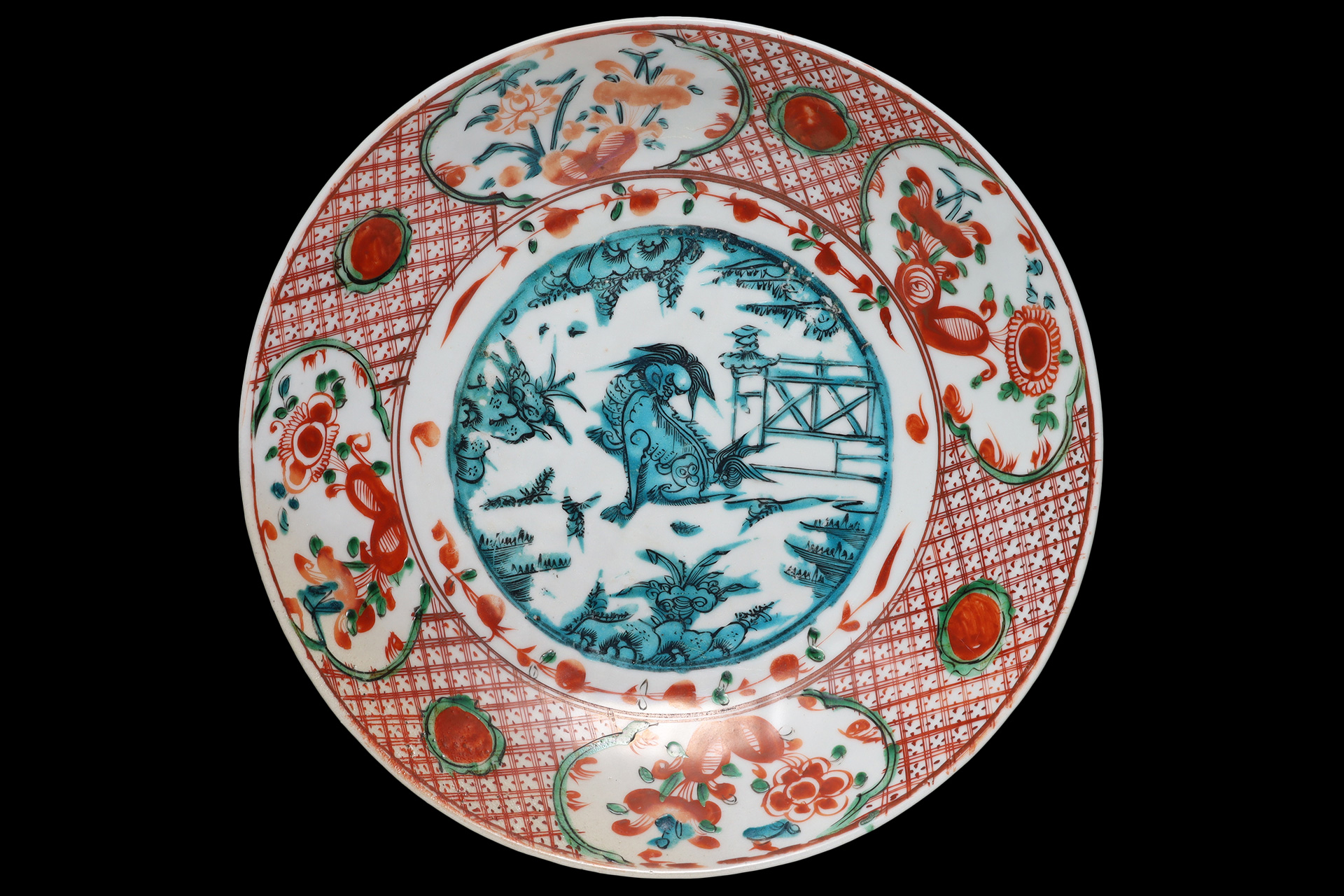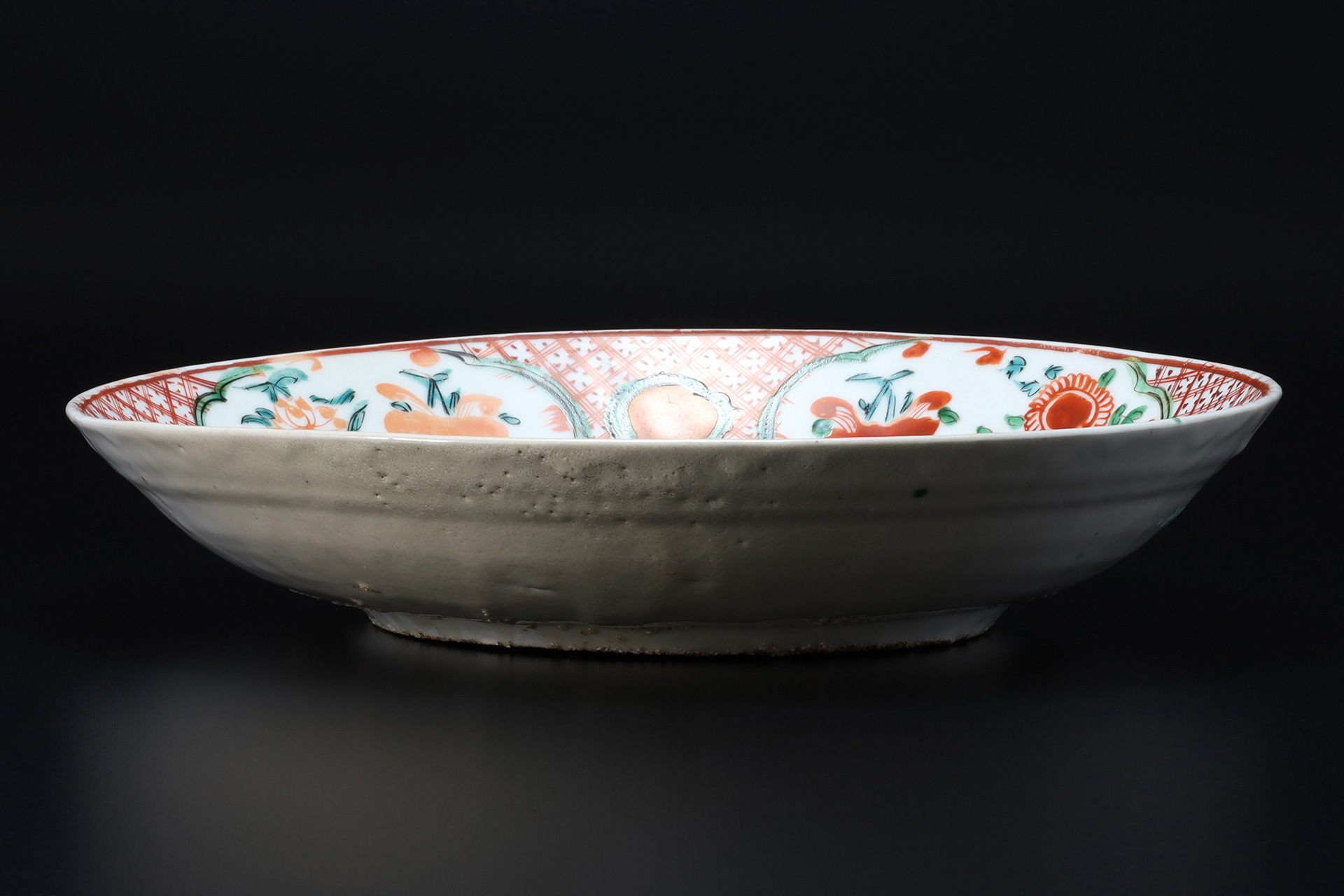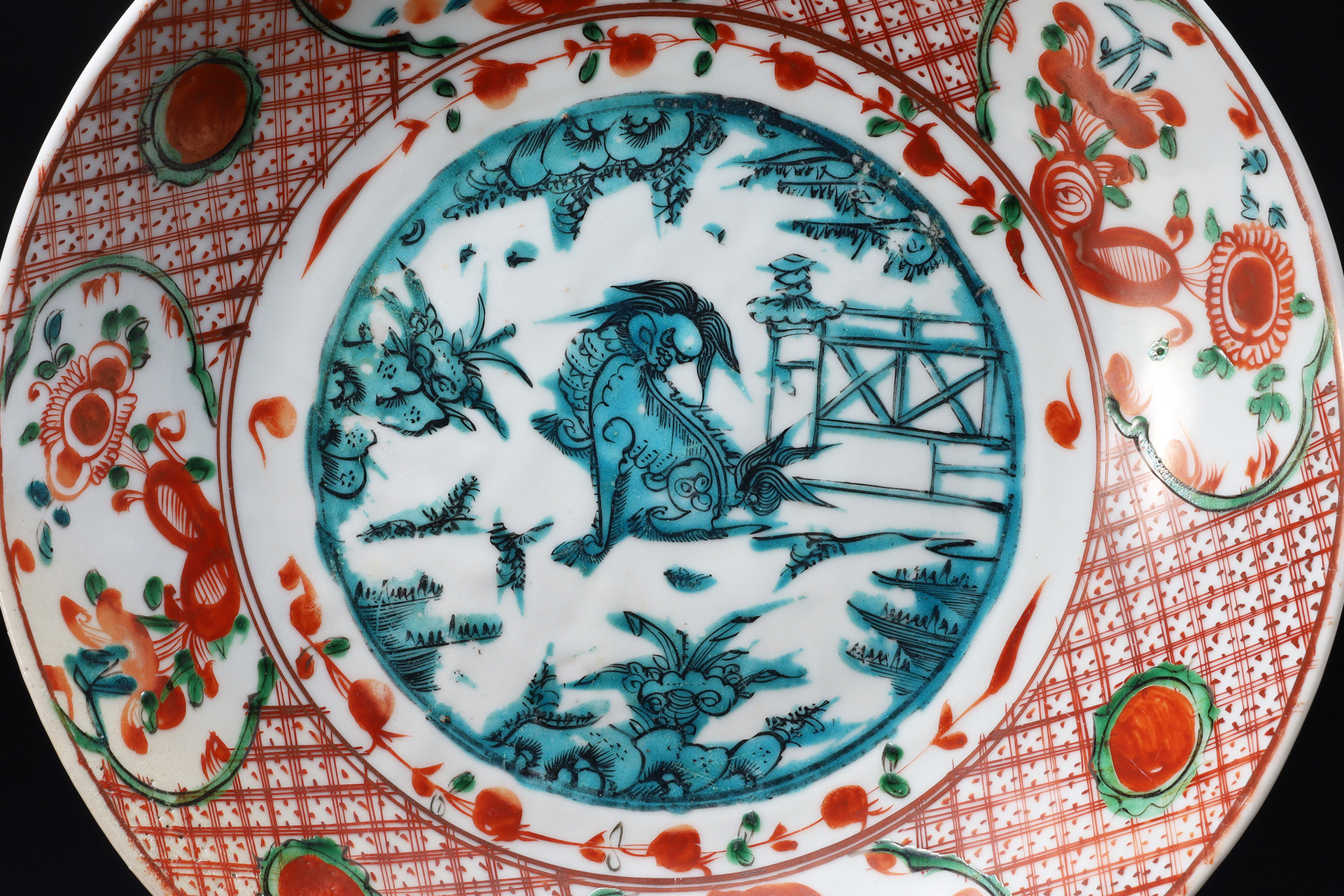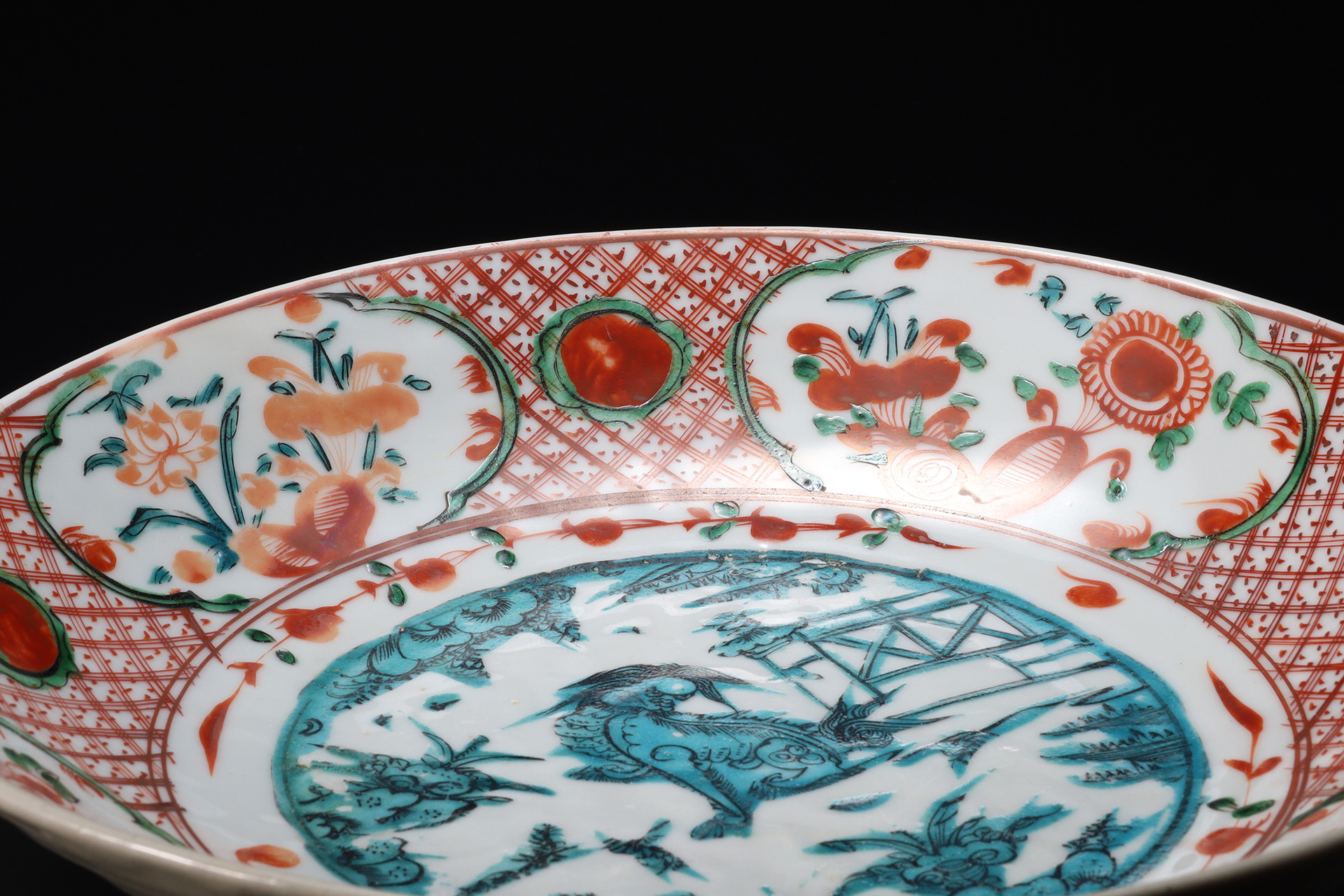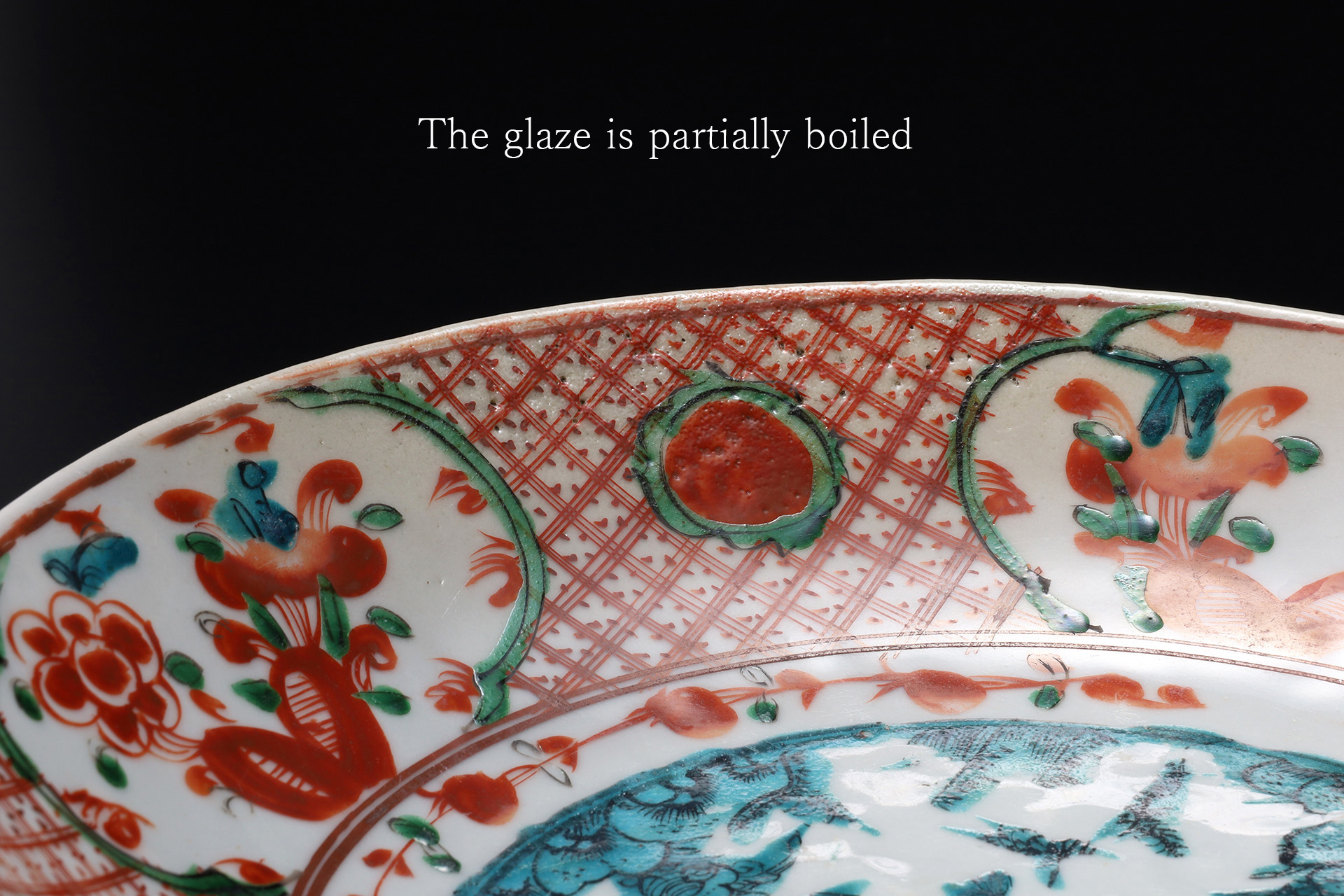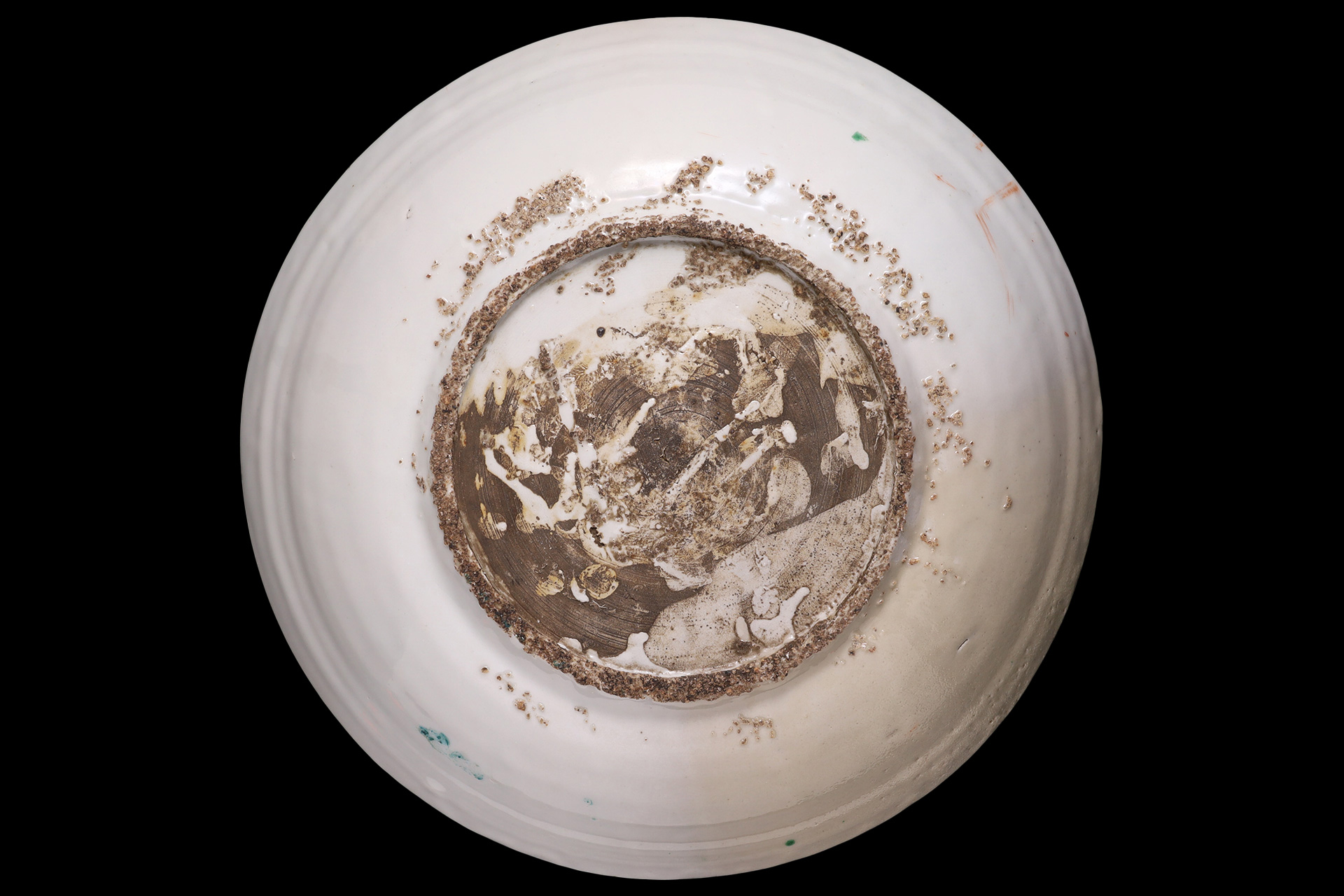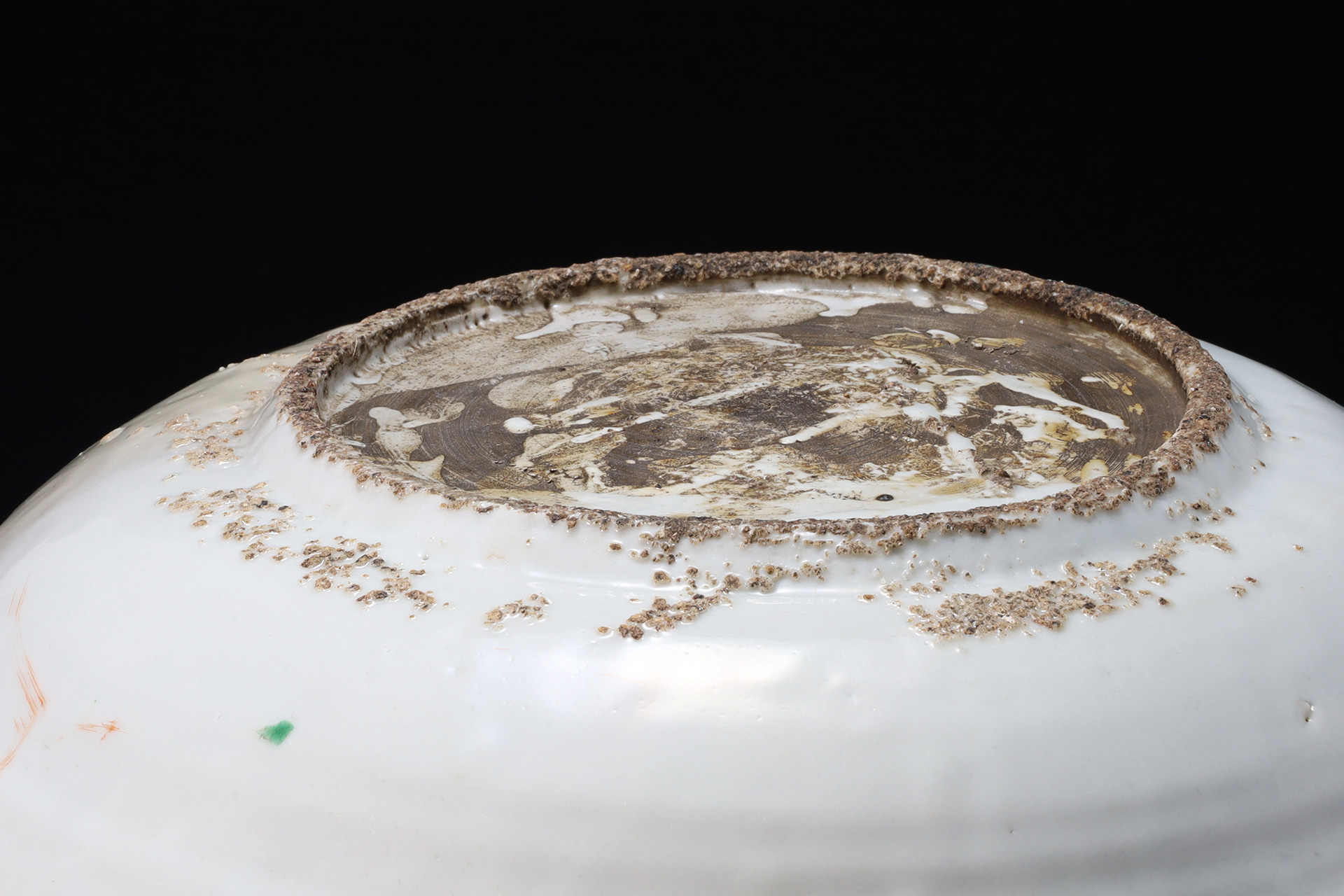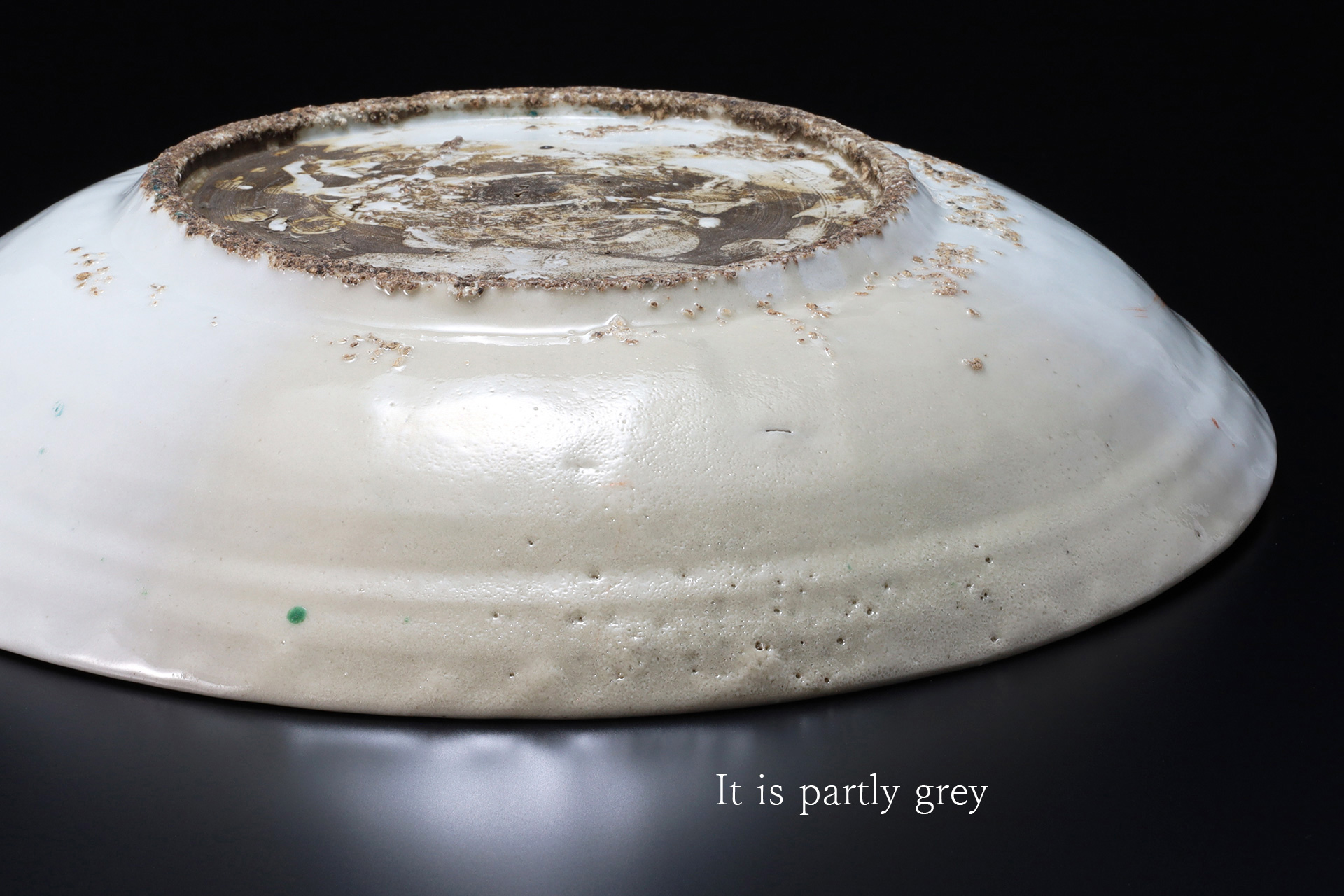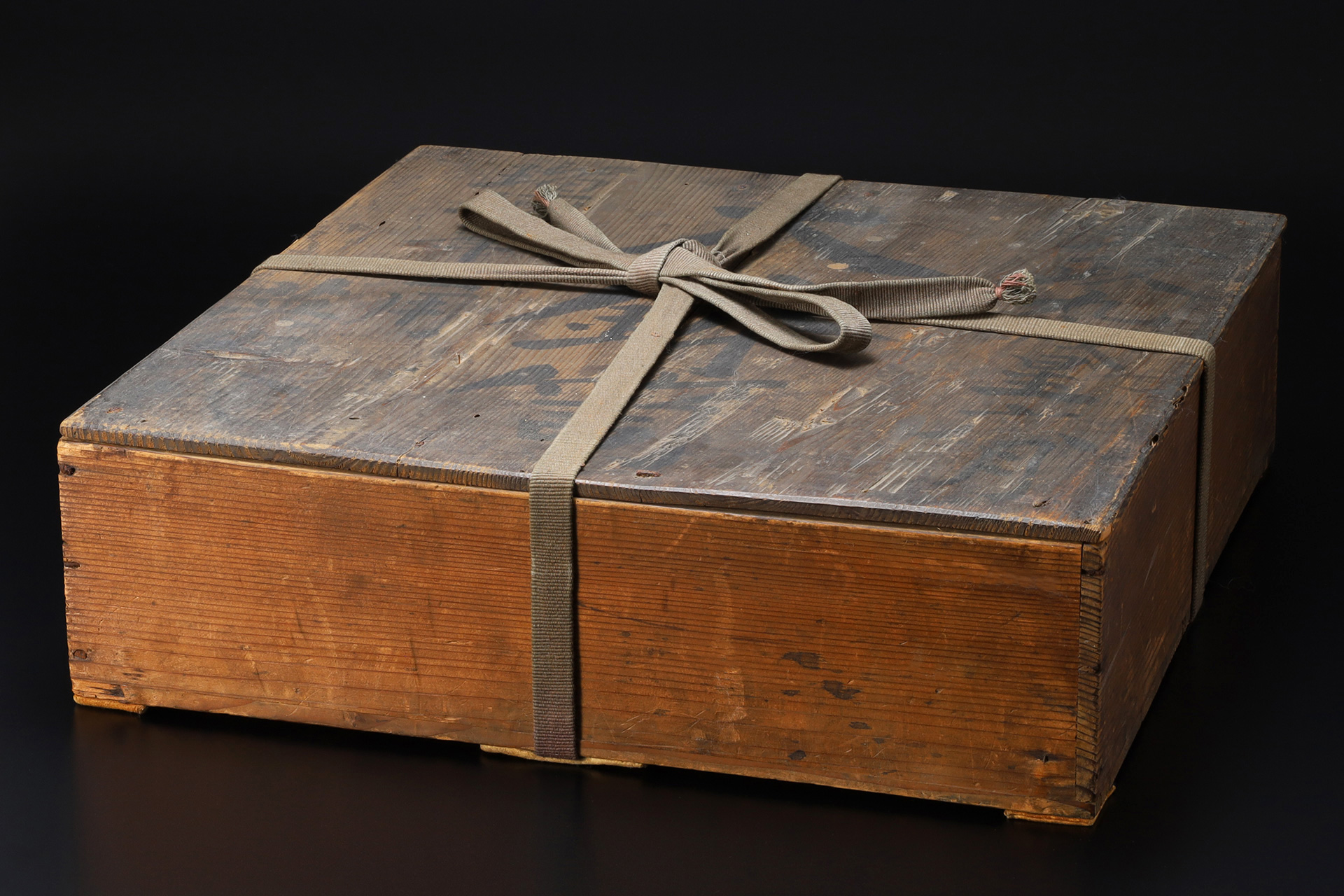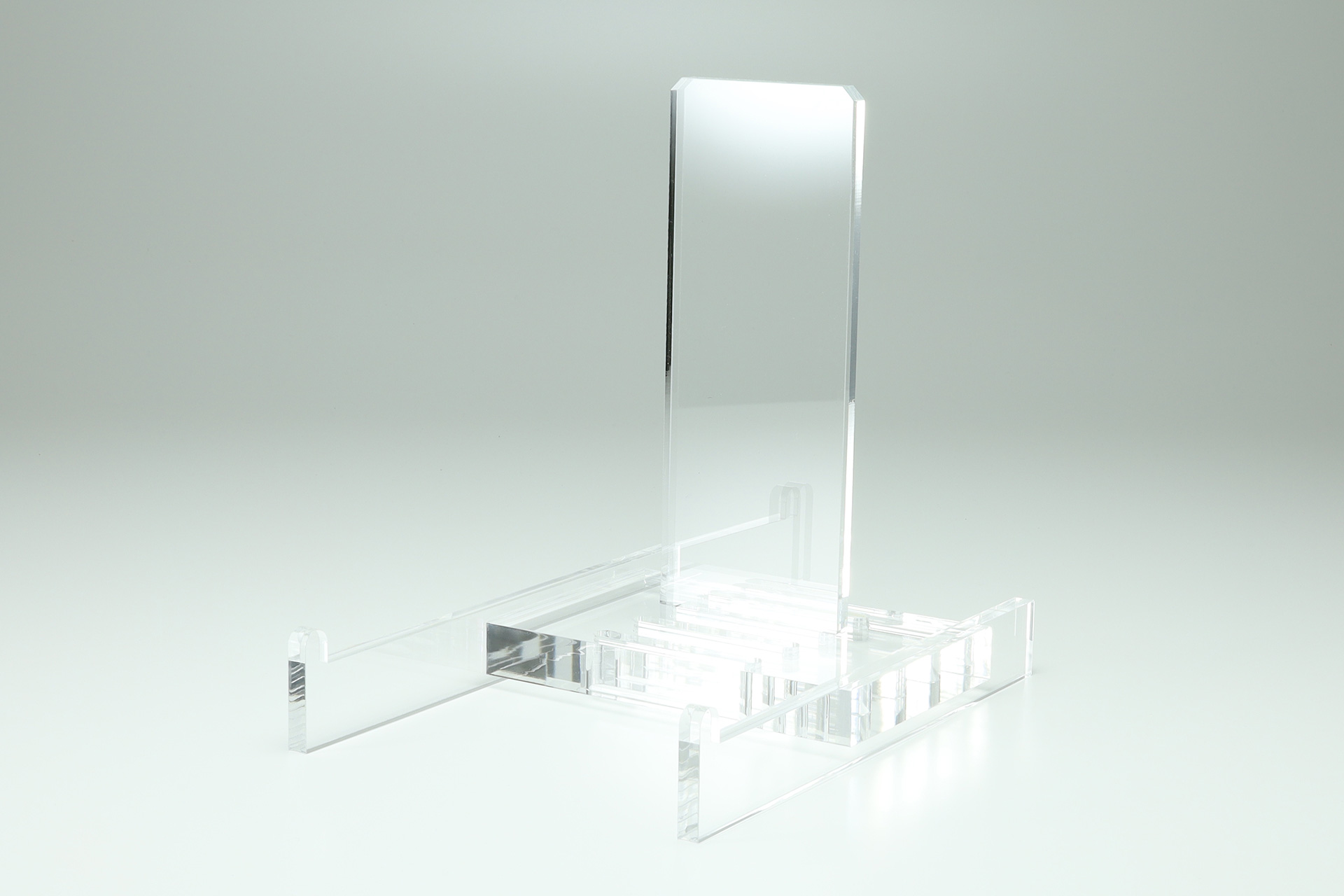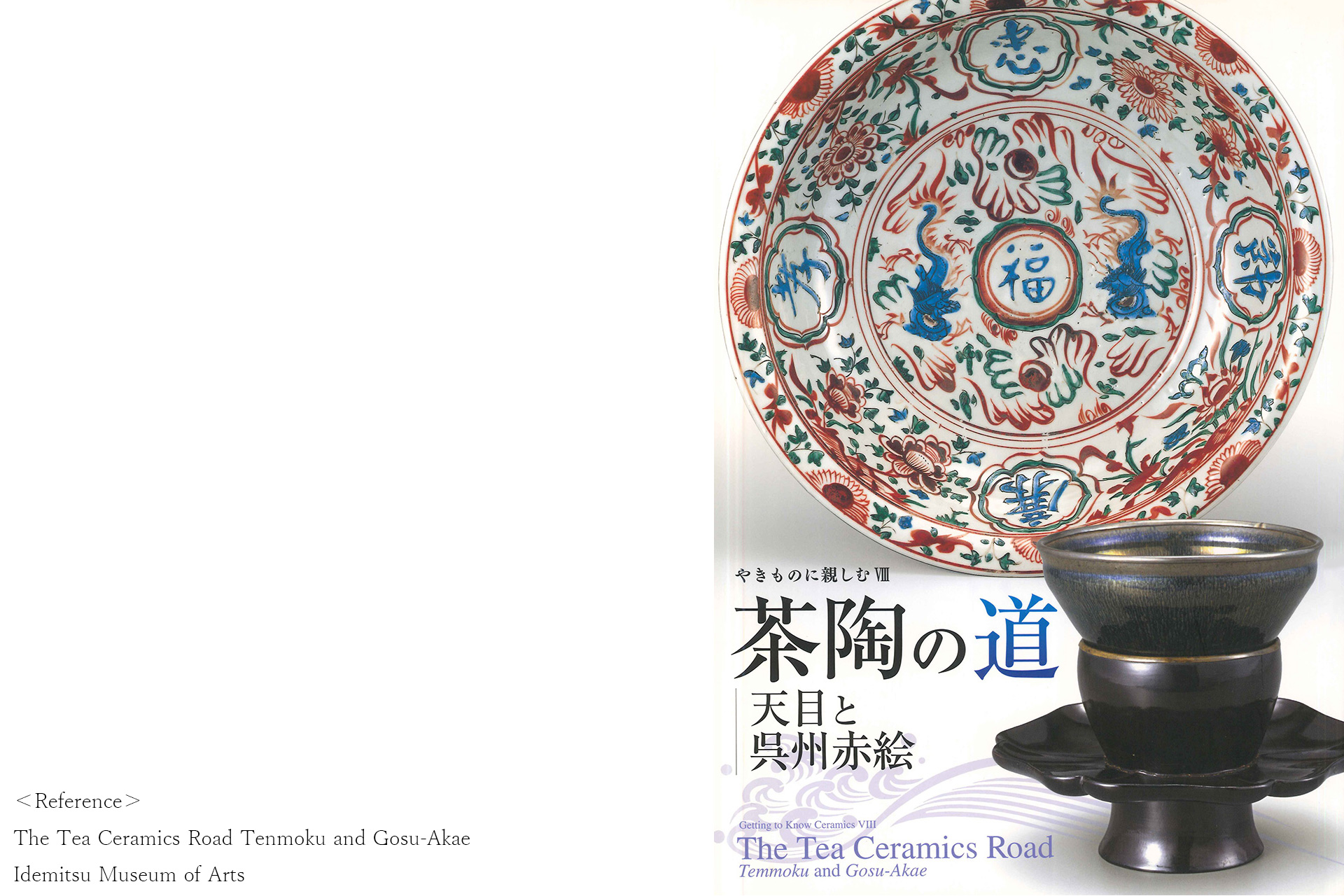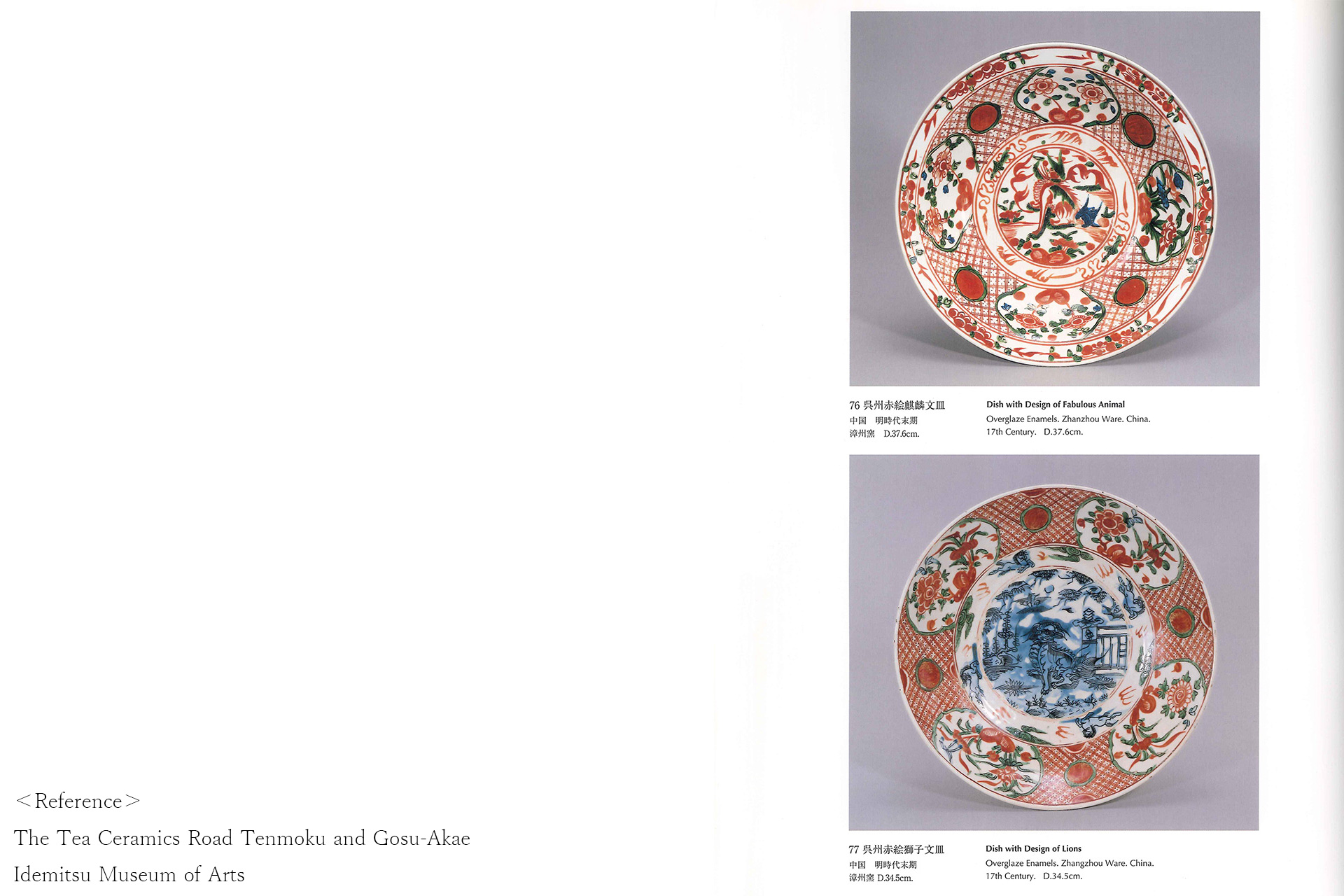This is the excellent work of gosu-akae with a lion motif as a popular subject. The milky white porcelain is decorated with fiery red as the base color, along with green and blue, and the stylish brushwork is captivating. Free spirited and unpretentious style was popular among tea masters. Works with similar designs can be found at the tokyo national museum and the idemitsu museum of arts.
⇒ Tokyo National Museum(The External Link)
- Period
- Ming Dynasty
Early 17th Century
- Weight
- 1,270g
- Diameter
- 33.3cm
- Height
- 7.2cm
- Bottom Diameter
- 17.2cm
- Description
- Old Wooden Box
Acrylic Dish Stand
- Condition
- Good Condition
There is no rubbing of the red painting or peeling of the colored glaze, and it still retains its beautiful appearance. Due to the firing process, some of the glaze has simmered, giving it a gray color, but since this is gosu-akae, which finds beauty in its roughness, this can be considered acceptable.

Gosu-akae refers to the overglaze enamels porcelain that were fired at the zhangzhou kiln in china, mainly during the late ming dynasty. The style is said to have been developed from the ko-akae and kinrande of the jingdezhen kiln.In europe and the united states, it is called “Swatow Ware” after its export port, shantou port in guangdong province.
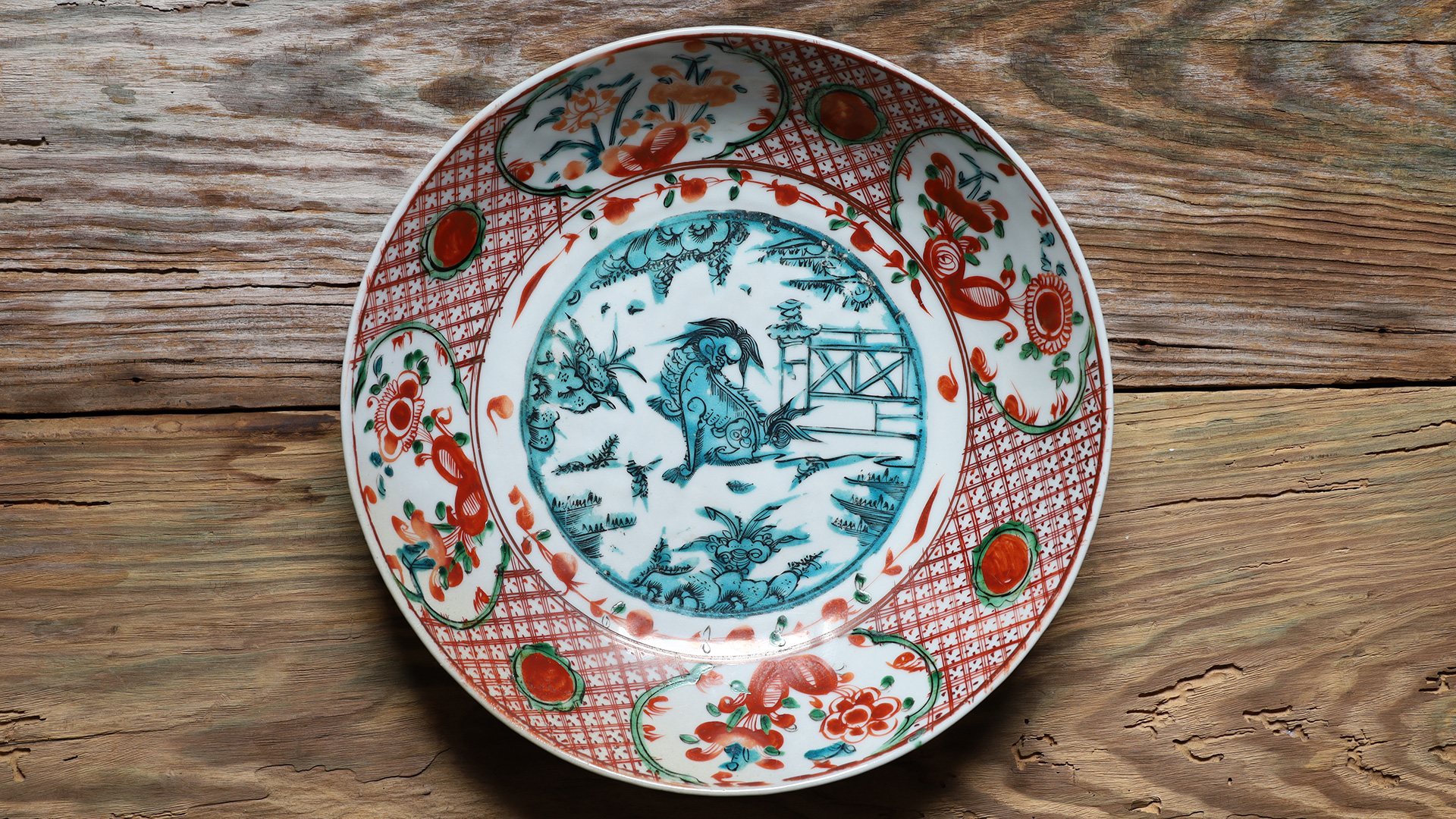
Lion is said to have the power to ward off evil, and famous examples include the “Karajishi-Botan”, which combines a lion with a peony, and the “Tamatori-Jishi”, which shows a lion playing with a jewel. “Peony and Lion” refers to a good combination.
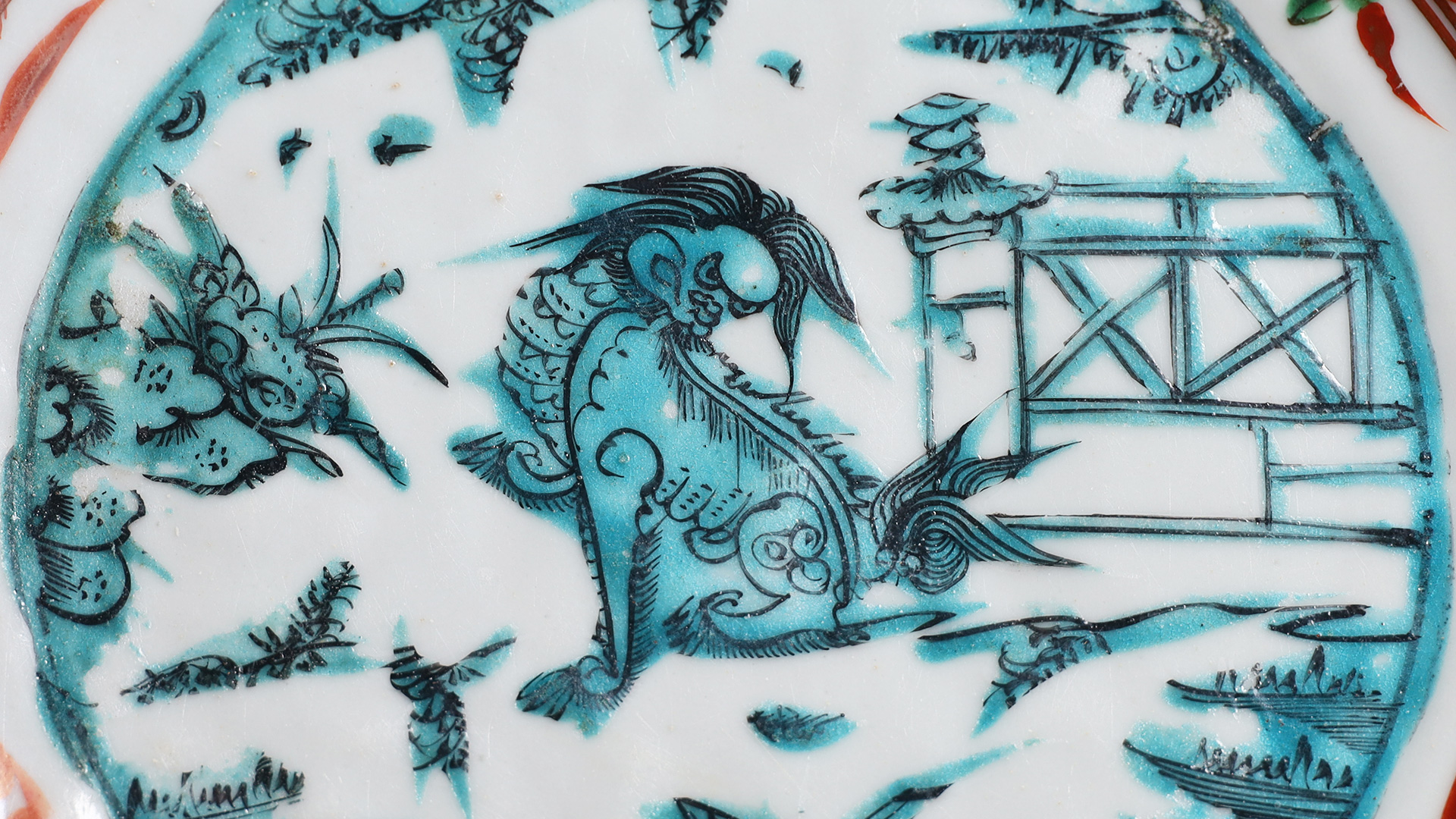
The vivid red color accentuates the milky white porcelain.
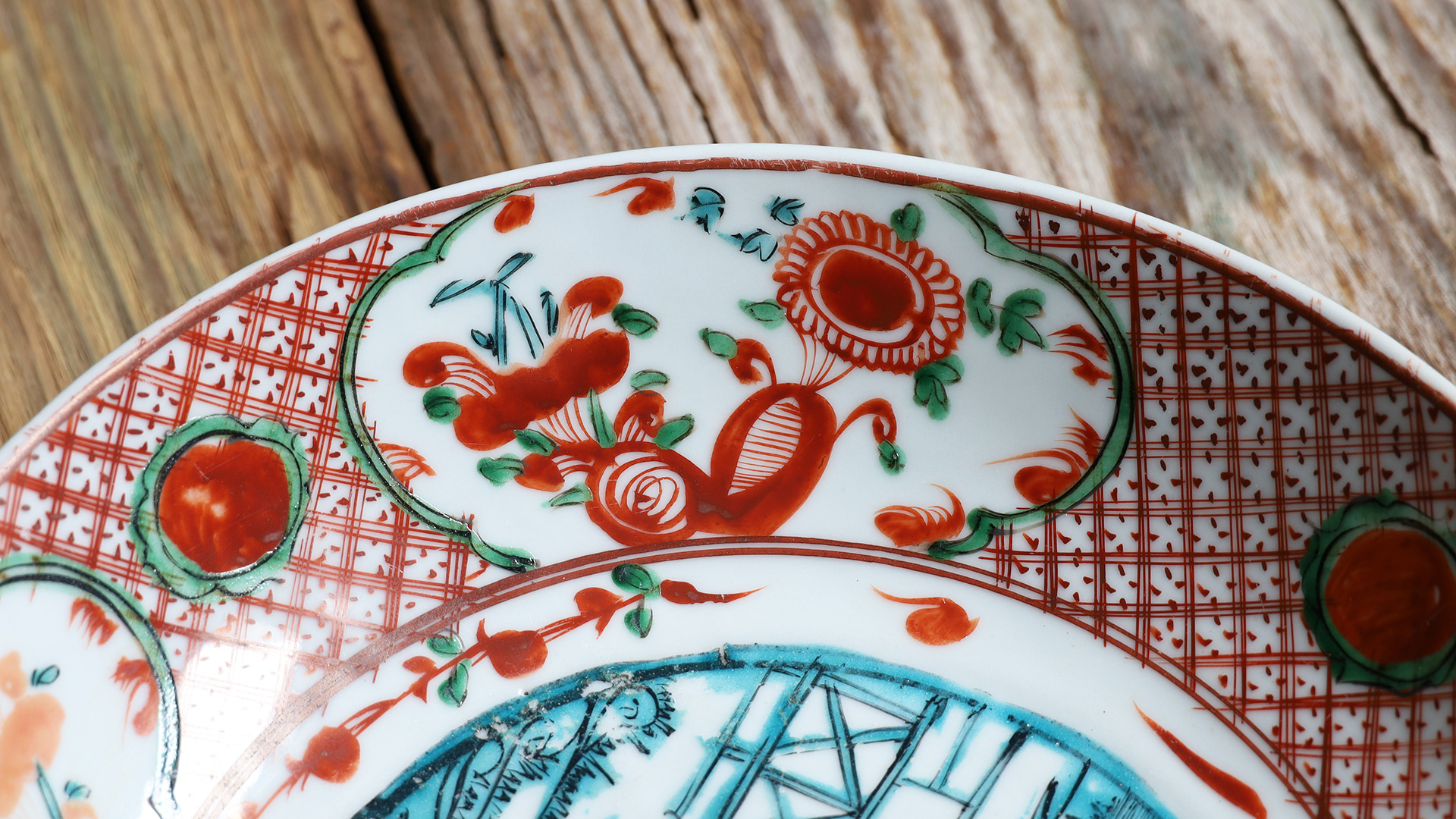
“Akadama”, with its red round design, was popular among japanese tea masters.
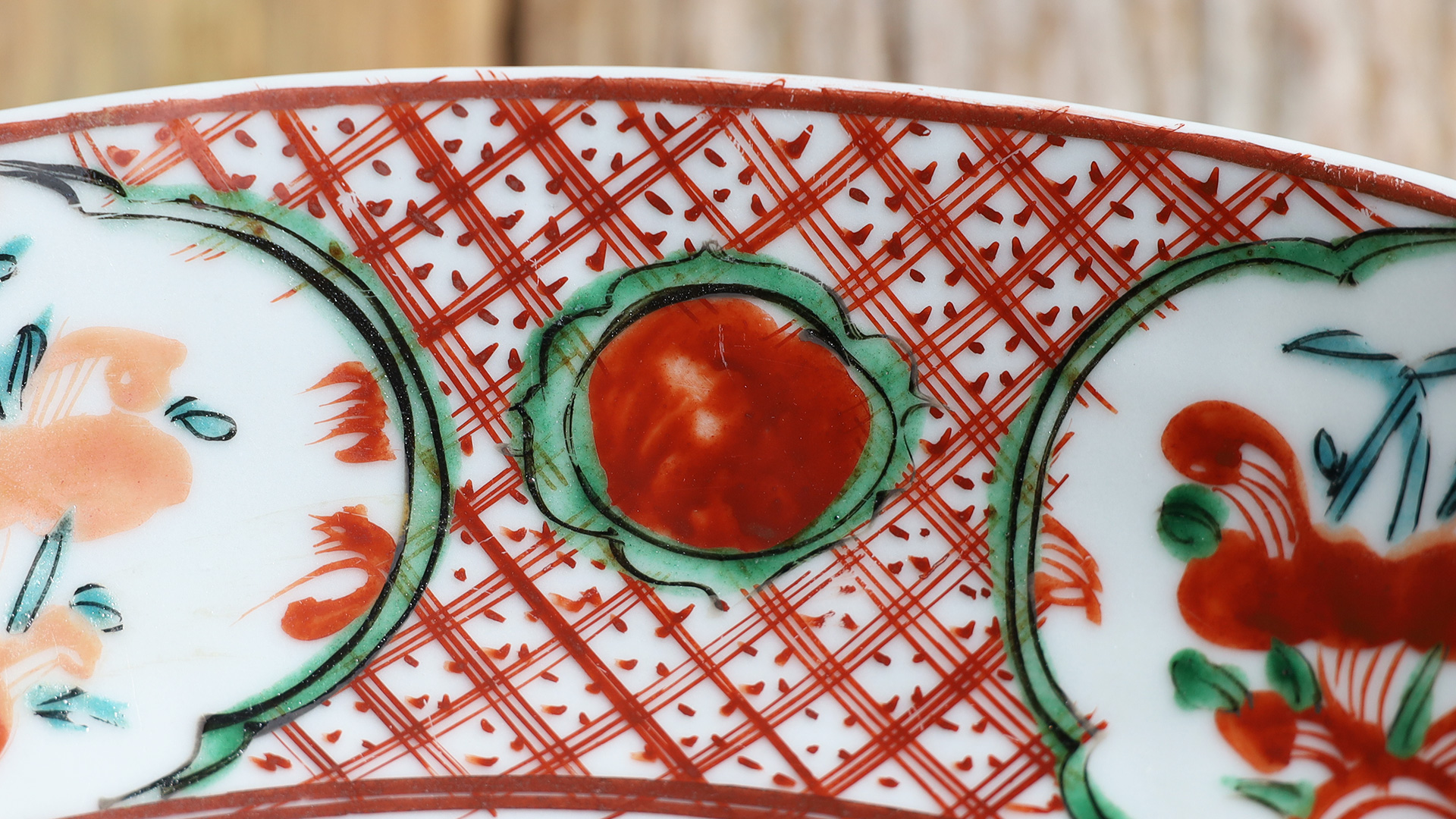
One of the characteristics of the pottery is that it has sand attached to the bottom because it was fired with sand laid down on it. Japanese tea masters found natural elegance in the coarse taste.
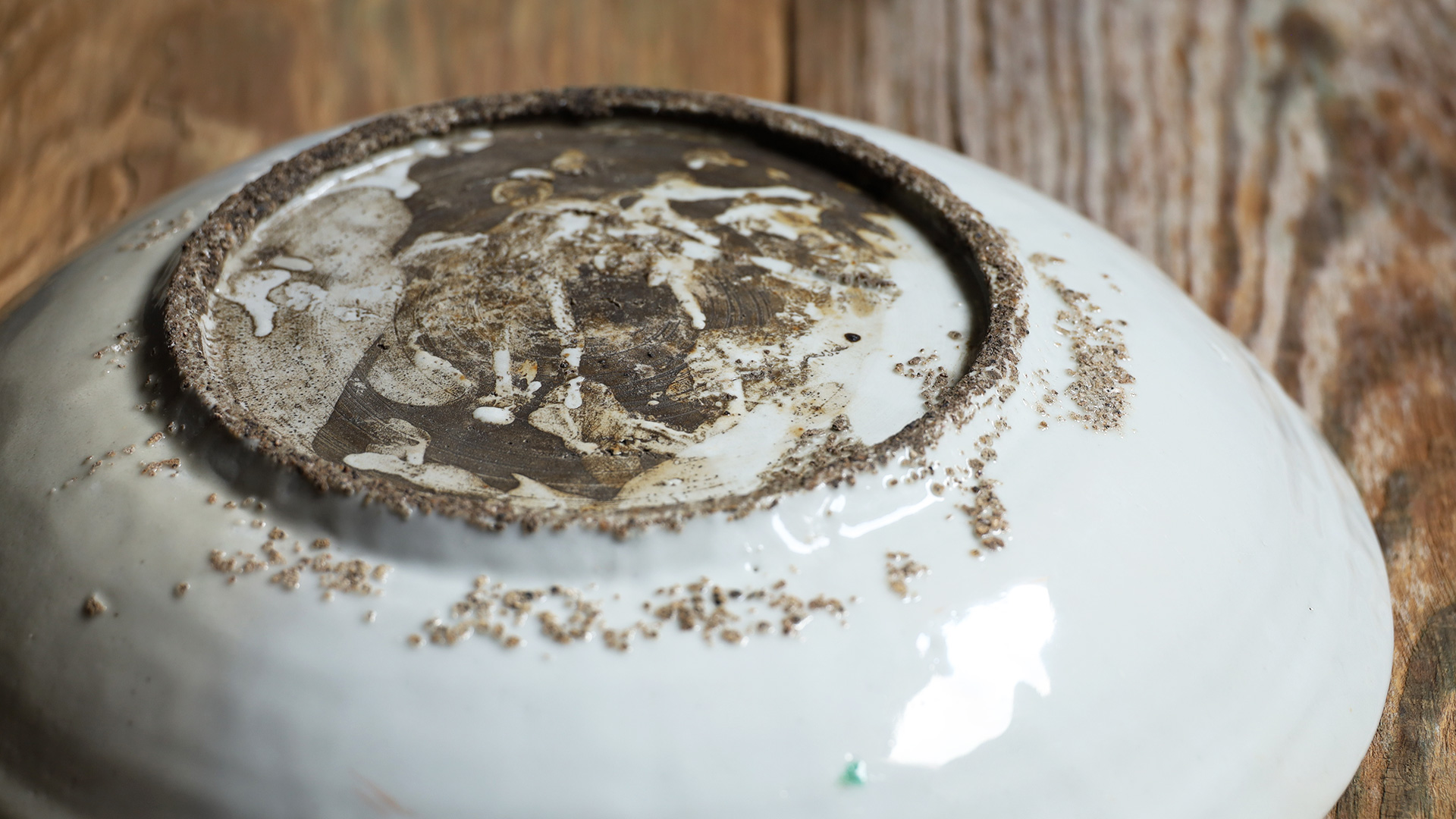
The work with a similar design is in the collection of the idemitsu museum of arts.
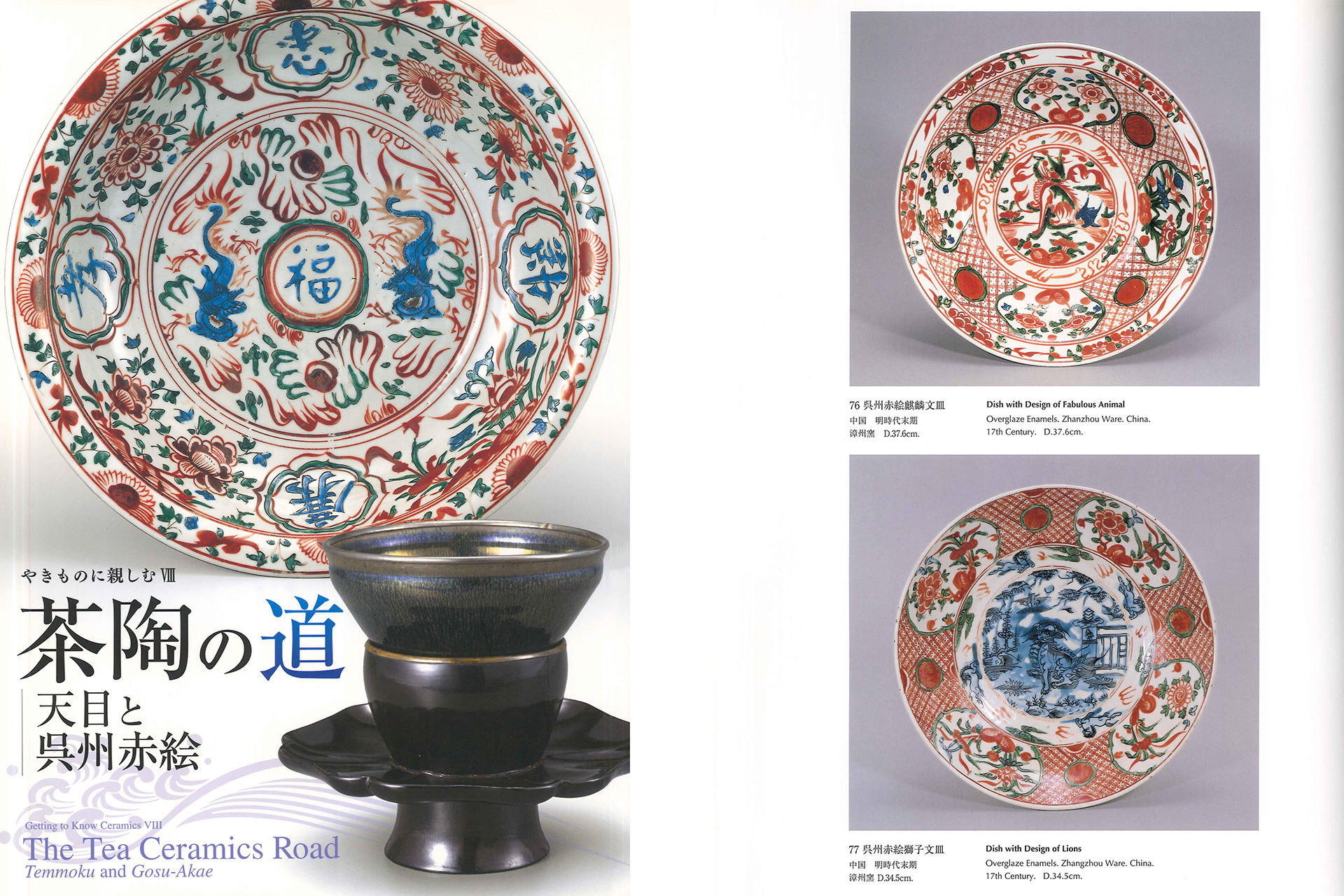
Gosu-Aka-e
Gosu Aka-e refers to overglaze enamels porcelain produced primarily during the late Ming dynasty at the Zhangzhou kilns in southern Fujian. Its style inherits the lineage of Ko-Aka-e and Kinrande made at the Jingdezhen kilns, while at the same time developing along an independent trajectory. Underglaze blue decoration is generally not used as a foundation; instead, a thick layer of milky, opacified glaze is applied both inside and out. The overglaze painting is dominated by red, accented with green and blue, and the sometimes bold, even rough brushwork imparts a distinctive presence. On rare occasions, gold leaf is applied over patterns of red roundels. The fired pieces often have a soft, somewhat heavy appearance. Because the vessels were fired on beds of sand, grains of sand adhering to the foot are a characteristic feature. Some works bear inscriptions such as “Tenka‑ichi” (“Best under Heaven”) or even Arabic script, reflecting the fact that their principal markets lay in Southeast Asia and Japan. Japanese tea masters held in high esteem pieces such as the tamatori‑shishi bowls and Sakigake-de bowls, whose uninhibited energy and exotic flavor introduced a new aesthetic sensibility into the world of tea.
